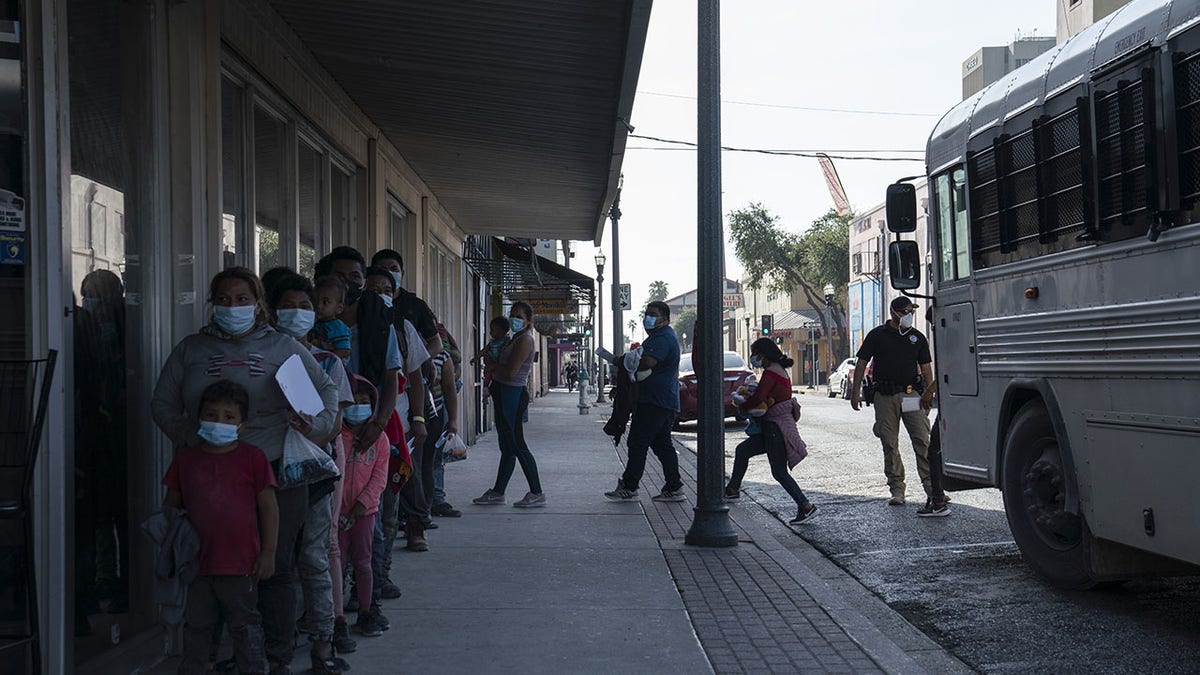Border surge expected as most voters oppose Biden's move to lift Title 42
'The Big Saturday Show' panel weighs in on Title 42 and drug smuggling at the U.S. southern border.
The mayor of the border city of McAllen, Texas is telling the Biden administration that "now is not the time" to end the Title 42 public health order that has been used to quickly expel migrants at the border – and warning that his city is running out of federal funding as it faces the expected migrant surge.
"Because of the problems we have with the new [COVID-19] variant that make that an issue, and then to lift Title 42, It is not the appropriate time right now," Mayor Javier Villalobos told Fox News in an interview with Fox News Digital on Thursday. "Right now is not the time to do it."
MAYORKAS TOUTS PAY BUMP, NEW HIRING TO BESIEGED BORDER PATROL AGENTS AS NEW MIGRANT SURGE LOOMS
The Biden administration announced this month that it will lift Title 42, which has been used since March 2020 to expel a majority of migrants at the border due to the COVID-19 pandemic, on May 23.

Aug 4, 2021: Asylum seekers arrive at a COVID-19 testing site after being processed by U.S. immigration officials in McAllen, Texas, U.S. Photographer: Veronica G. Cardenas/Bloomberg via Getty Images
It has raised concerns from both Republicans and Democrats that it will spark even bigger numbers than are already being seen at the border, as well as worries about the BA2 subvariant which has contributed to rising cases in some areas of the country.
Villalobos, a Republican who was elected last year, expressed particular concern about whether the federal government had appropriately planned for the numbers that will hit the border once the order lifts, and if there is appropriate funding for cities like McAllen that are on the front lines of the crisis.
"Our municipality does not deal with immigration, yet we have for the past several years, and we don't have the funding -- so does Washington have a plan for what is going to happen on May 23?" he asked.
TEXAS BORDER CITY PUTS UP TEMPORARY SHELTERS TO COPE WITH ‘RAPIDLY ESCALATING’ MIGRANT SURGE
He said that with the nearly two-month window before the order ends, it is giving migrants from Central American countries the chance to get ready and travel to the border ahead of the order’s lift.
"I don’t know if the federal government’s ready and for us to be ready they need to provide us with necessary funding," he said.
McAllen, with a population of about 150,000, was seeing thousands of migrants each day at the height of last year’s migrant surge. At one point it was forced to set up temporary shelters in response to what it called a "rapidly escalating" migrant surge.
Villalobos said that things are relatively quiet in his area now, but he is concerned about the increase that a lifting of Title 42 will bring.
"Right now, we have no issues. There are a couple of hundred [migrants] a day but we can handle that easily," he said. "But last year, when it went from several hundred to over a thousand that's when it got a little difficult. But now we’re expecting an influx of approximately 1.7 million we’re going to have issues and that's where we have the problem."
He said McAllen was given approximately $20 million in federal funding last year that went to immigration-related matters such as processing and transporting migrants and assisting NGO’s. But he said that money has almost run out.
"We are pretty much out of funds that have been allocated by the federal government and once [Title] 42 is lifted there's going to be an influx, a great amount of immigrants coming in," he said.
He said that McAllen itself spent more than $100,000 of its own funds on immigration: "We should not spend one single cent on immigration issues, that's a federal government issue, that's something that Washington should take care of."
There were more than 164,000 migrant encounters in February, and that number is expected to have risen significantly in March, potentially to over 200,000. Agents have regularly been encountering between 7-8,000 migrants a day.
CLICK HERE TO GET THE FOX NEWS APP
Villalobos said the migrant numbers was not just about border cities like McAllen, but also a national issue as migrants don’t stay at the border -- but travel deeper into the U.S.
"When we talk about immigrants, they don't stay here, they pass through here, they come, and they pass through here, and they go, so it's not a McAllen and Rio Grande Valley problem, it's a national problem," he said.
He added: "We dont want to be involved at all, but for the purpose of public safety, we will do what we need to do to keep the immigrants safe and to keep our community safe."















































